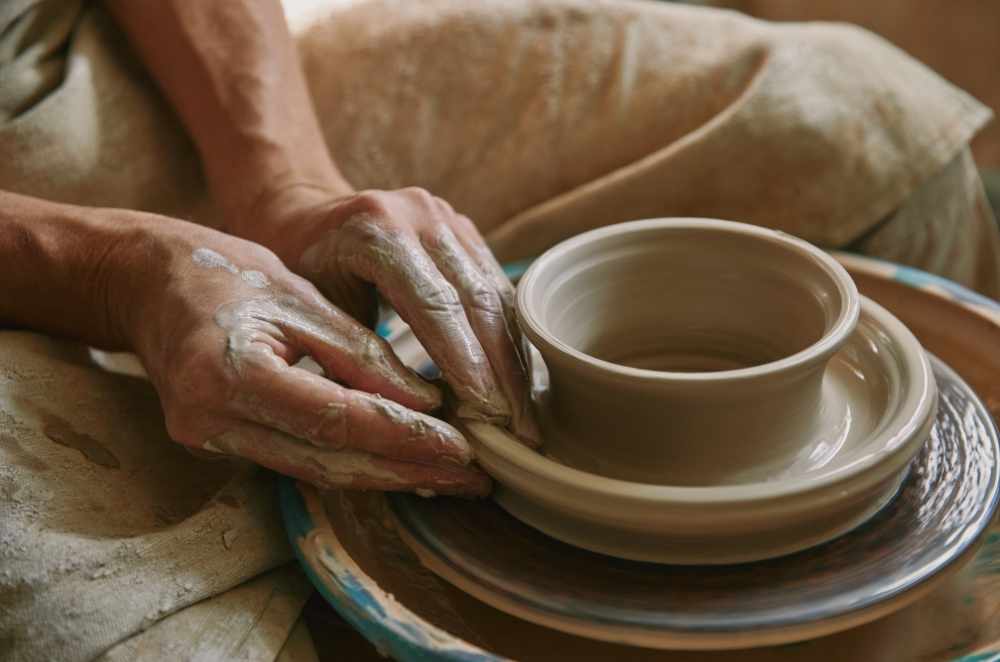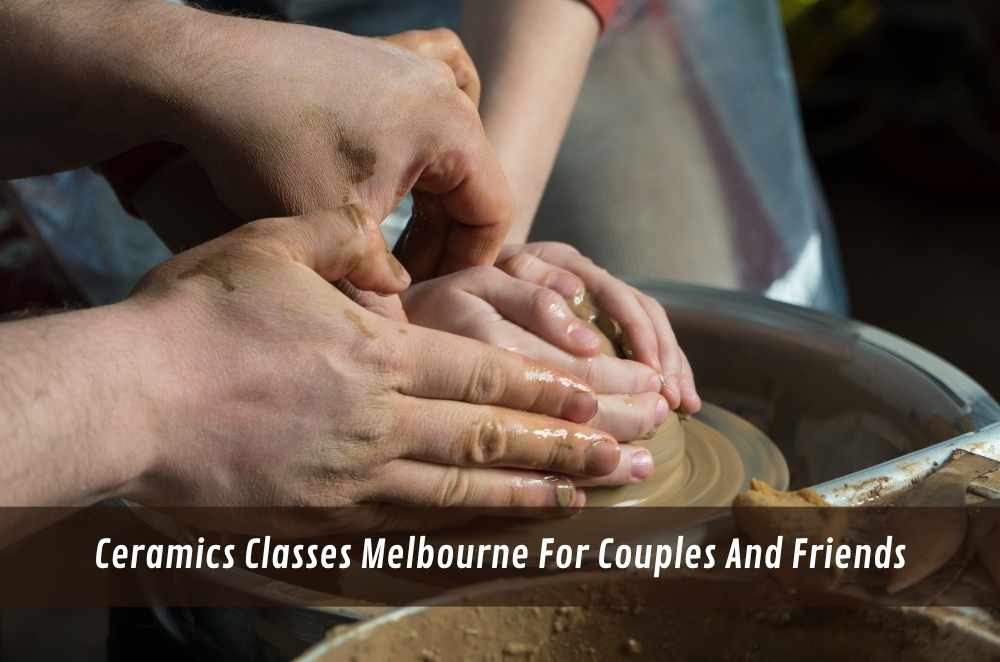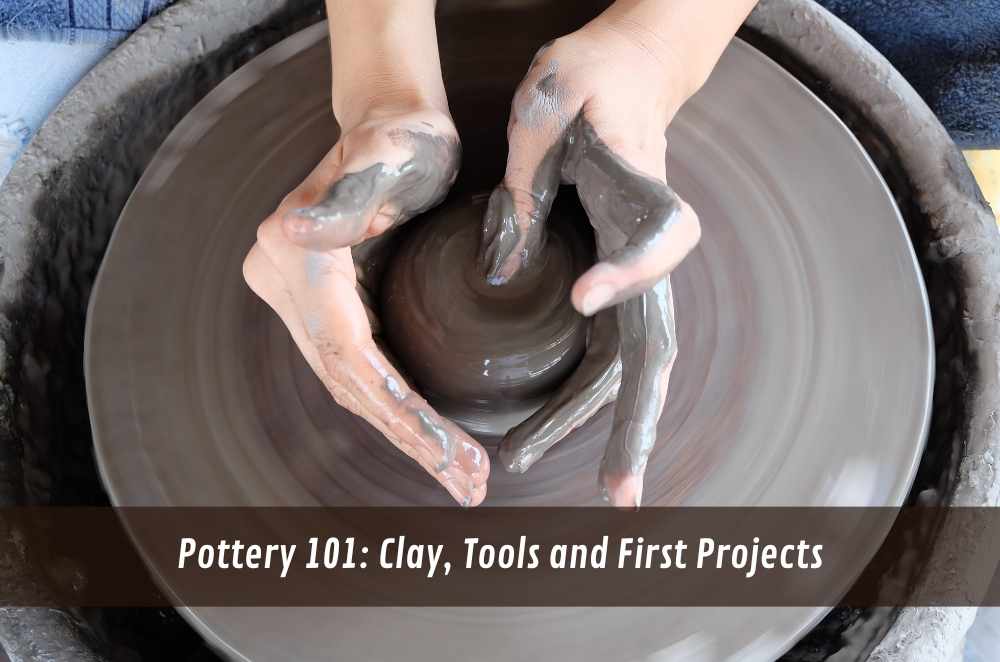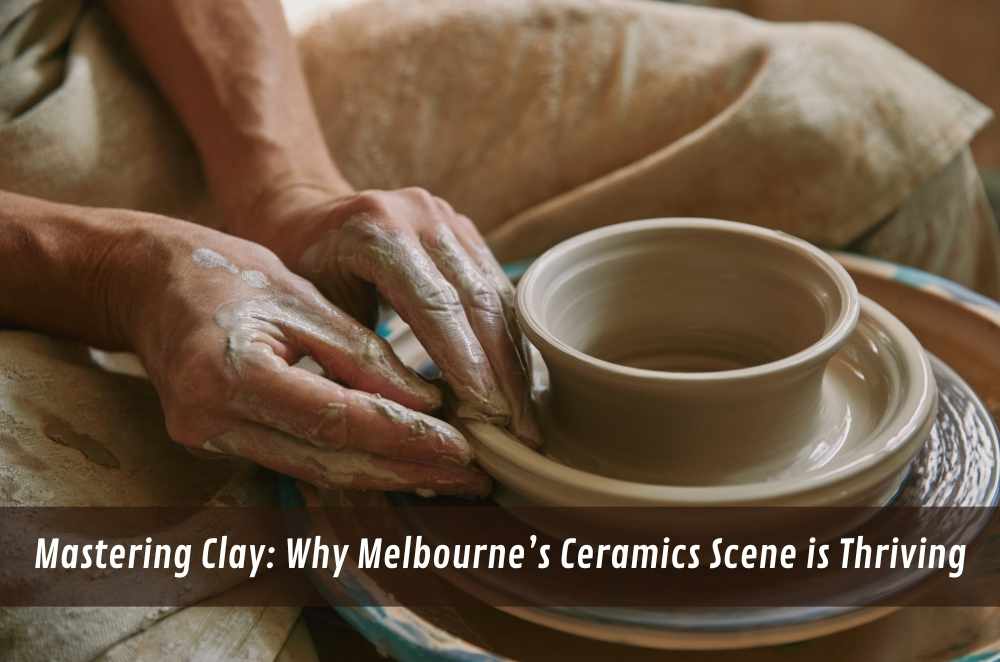I’ll be honest—I didn’t expect to enjoy it. A mate roped me into one of those pottery wheel classes, and I thought it’d be a laugh at best, a waste of a Saturday at worst. Walked into this studio on a drizzly morning, the windows fogged up from the kilns in the back, the smell of clay mixing with coffee. The instructor had clay under her fingernails that looked permanent, like it had been there for years. Everyone else seemed to have a clue. I sat down at the wheel, dropped a heavy lump of clay on the centre, and watched it spin completely off balance. Within minutes, it flopped into something that looked more like a cow pat than a bowl.
But here’s the thing—I walked out lighter than I’d felt in months. It wasn’t about making something pretty. It was about zoning out, letting my hands do the thinking. That wobbling bowl still sits on my shelf today. It’s ugly. It’s uneven. And it’s proof that sometimes failing is the whole point.
But here’s the thing—I walked out lighter than I’d felt in months. It wasn’t about making something pretty. It was about zoning out, letting my hands do the thinking. That wobbling bowl still sits on my shelf today. It’s ugly. It’s uneven. And it’s proof that sometimes failing is the whole point.
Why pottery still matters in a modern, digital world
We’re all plugged in constantly. Emails, endless scroll, notifications buzzing like mosquitoes. Pottery is the opposite of that. You can’t doomscroll while throwing clay. You can’t check messages mid-spin. You’re there, present, whether the piece works out or not.
And that’s rare. It feels almost rebellious to just stop and focus on something slow. Pottery links us to history, too. People thousands of years ago were hunched over clay, doing the same motions. Sit at a wheel, and you’re part of a lineage longer than most family trees.
The best bit? Pottery makes things useful. A mug, a bowl, a plate—you end up living with the stuff you create. It’s not like sketching something and shoving it in a drawer. Your fingerprints literally become part of your daily routine. Imagine sipping coffee from a cup you shaped, glazed, and fired yourself. Even if it’s a bit lopsided, it feels different. Feels honest.
The mental health benefits of joining a pottery class
A lot of people describe pottery as “therapy with clay.” They’re not wrong. I’ve seen people drag themselves into the studio after a brutal week—tired eyes, jaw clenched—and two hours later, they’re grinning through streaks of clay across their arms. It’s like something clicks off in the brain, a switch that only clay knows how to flip.
Why does it help so much?
Stress softens when your hands are occupied.
Pottery forces you to slow down, rush, and the piece collapses.
Creativity sneaks out whether you planned it or not.
That small hit of achievement when you pull your first mug from the kiln is real.
One woman in Glebe told me pottery pulled her out of burnout. High-pressure finance job, couldn’t sleep, always buzzing. She started pottery on a whim, and suddenly she had two hours every week where her phone stayed in her bag and her brain stopped sprinting. By the end of the course, she wasn’t just calmer—she had new friends and a cupboard full of mugs. Her husband joined later, and while he teased her about it at first, he now brags about his “signature noodle bowls.”
Pottery class safety and what beginners should know
Now, it’s not all earthy vibes and Instagram-worthy mugs. Pottery has risks if you ignore them. Clay dust carries silica. Too much inhaled over time can hurt your lungs. That’s why serious studios hammer in pottery class safety right from the start.
What beginners need to know:
Clean smart. Damp cloths, not dry sweeping. Keeps dust down.
Wear the right gear. Aprons, old clothes, closed shoes—you’ll thank yourself.
Don’t play with glazes barehanded. Some have chemicals you don’t want on your skin.
Kilns aren’t toys. They run hotter than your oven ever could. Leave them to trained staff.
I once heard about a bloke who thought he’d save money by setting up a kiln in his garage. Bought it second-hand online. Within half an hour, the heat cracked his concrete floor and smoke poured into the street. Neighbours called the fire brigade. It’s a story studios love to tell—not to scare people, but to remind them pottery’s a craft that deserves respect as much as enthusiasm.
Exploring pottery for kids, couples, and communities
Pottery is flexible. It suits whoever picks it up.
Kids dive in headfirst. For them, it’s play. That’s why studios offer pottery classes for kids, messy, creative, zero judgement.
Couples sometimes book a pottery class as a quirky date. Yes, the famous movie scene gets mentioned, but honestly? It’s fun. You make a mess, you laugh, you take home something together.
Communities—local councils run group classes, and I’ve seen total strangers turn into mates while shaping bowls side by side.
I once joined a Saturday class where three generations rocked up—grandparents, parents, kids. They weren’t aiming for perfection, just making something together. Over weeks, they created a mismatched dinner set. On the last day, they laid it out like a family feast. Crooked bowls, uneven plates, but grins all around. The pieces weren’t just ceramics—they were memory markers.
Real stories from people who discovered pottery
Every studio has its cast of characters:
A retiree in Marrickville said pottery gave him structure after leaving work. He now gifts mugs to neighbours as “welcome packs.”
A Newtown uni student who started casually but ended up with a weekend stall selling quirky planters. Her “wonky cactus pots” sell out every time.
A mum in Bondi who joined for peace and ended up making it a bonding night with her teenage daughter.
And me—I still keep that first ugly bowl. Every time I see it, I remind myself that it doesn’t have to be perfect to matter. That bowl is proof of process, of presence.

Final thoughts
Pottery’s more than a hobby. It’s a reset button. A reminder to slow down, get your hands dirty, laugh at your mistakes, and end up with something you can actually use.
From the hum of the wheel in pottery wheel classes to the quiet pride of sipping from a mug you made, it gives more than objects—it gives connection. To yourself. To other people. To history.
And that’s the thing. You’ll get messy. You’ll mess up. But you’ll also walk out calmer, prouder, and carrying something that’s genuinely yours. And in a world full of fast fixes and digital distractions, that’s worth a lot.








Write a comment ...